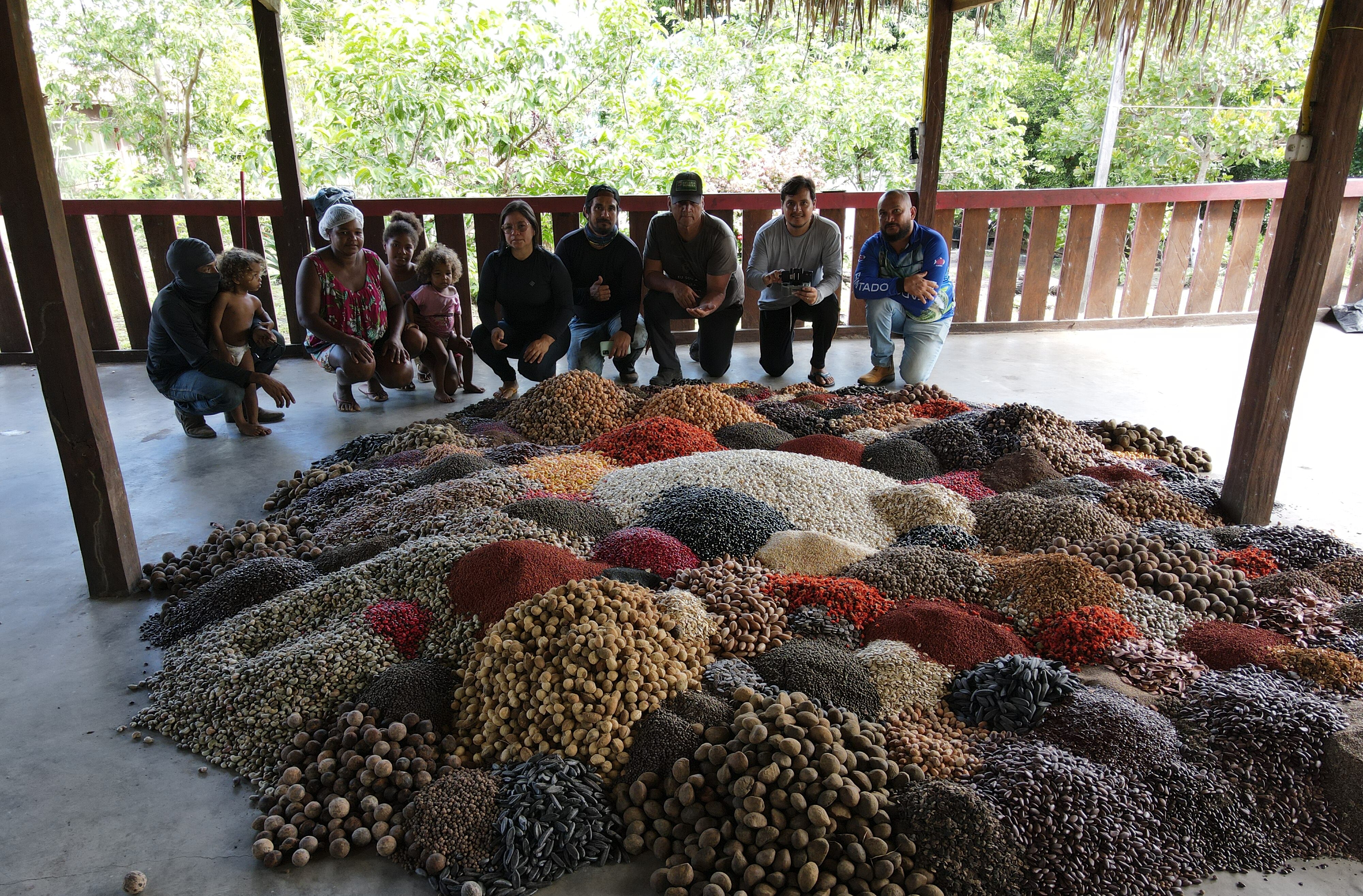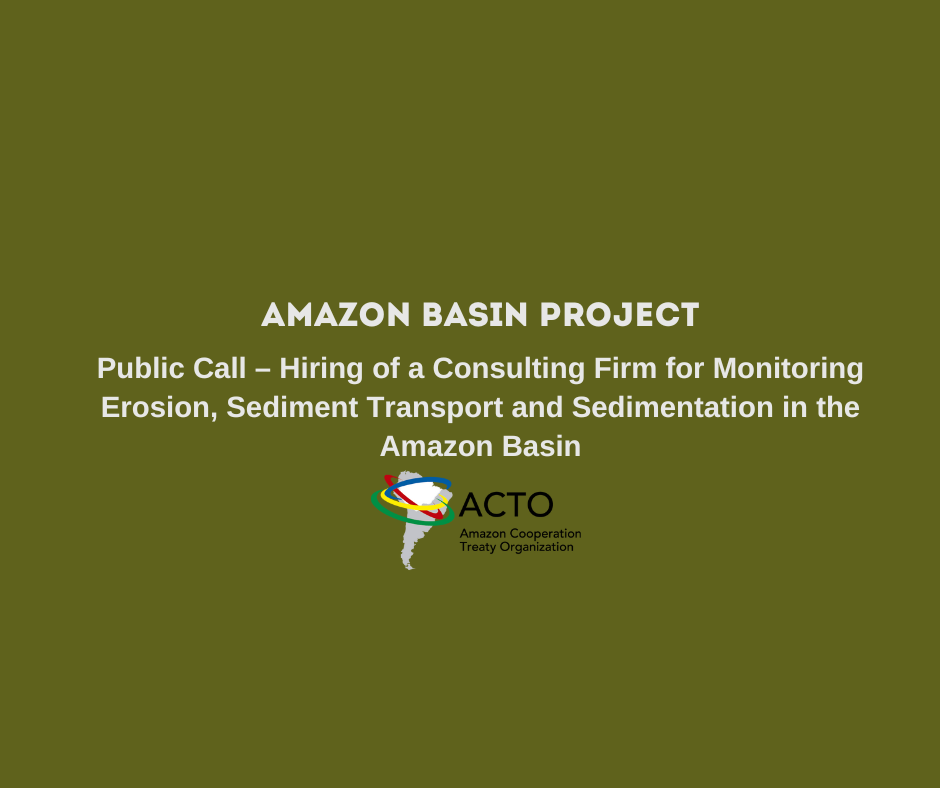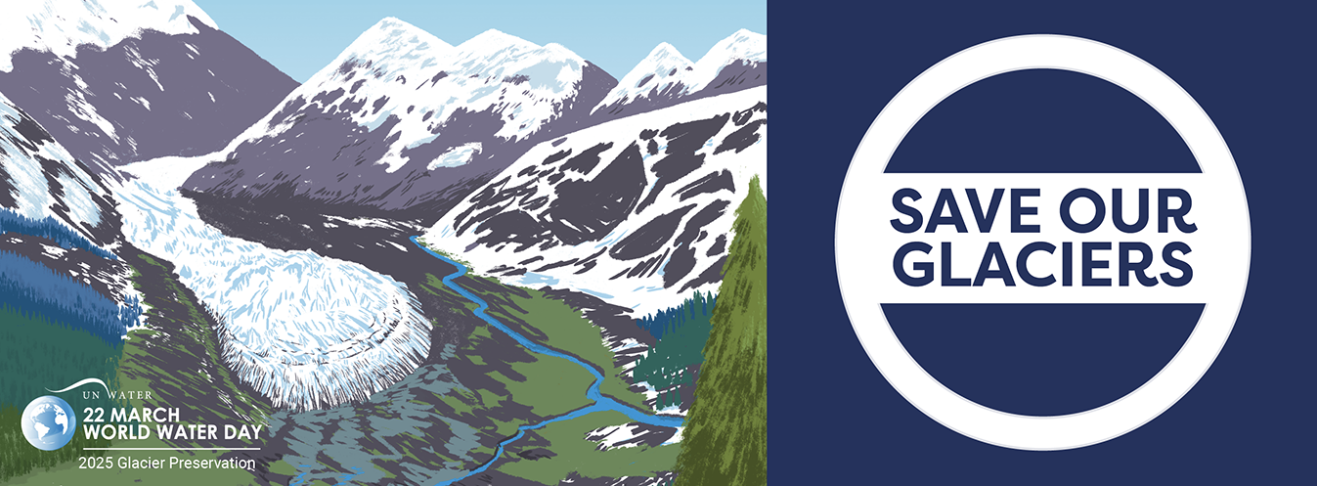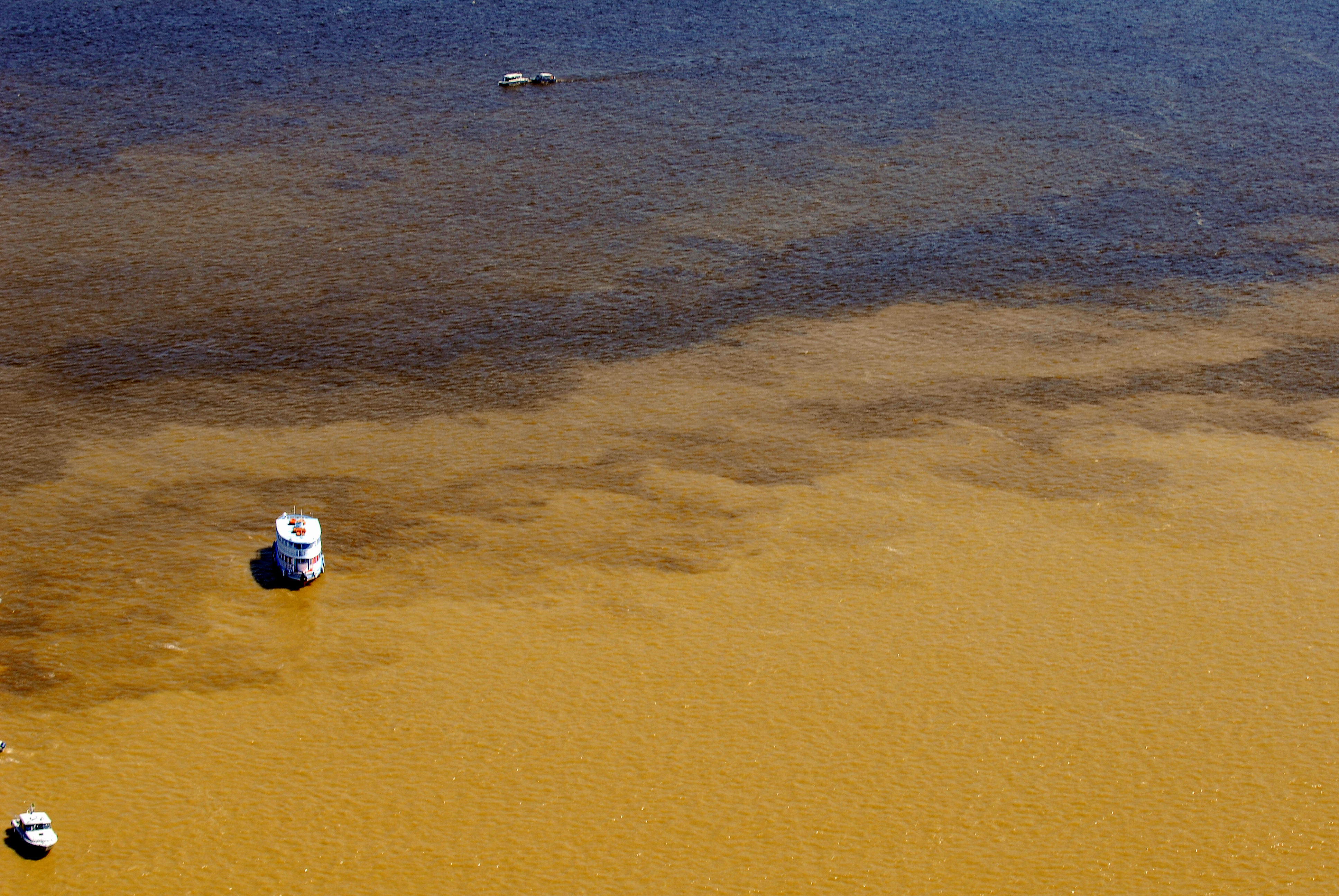Marinês Lopes de Sousa, 58, is a seed collector, extractivist and political leader of the Rio Xingu Extractive Reserve, a protected area located in one of the most biodiverse regions of the Amazon. Living in the interior of the forest since she was a teenager, in remote territory and without a school, Marinês opened the doors of her house and created all the necessary conditions so that the children of the community, including her six children, could study and become literate. For two years, her house sheltered the community’s first school. The intuition about the value of letters and literacy, converted into a project carried out by this woman who could only learn to write her own name, was the first expression of her vocation for political engagement – an aptitude that has always been at the service of the development of the community and which paved the way for Marinês’ community protagonism.

Marinês Lopes de Sousa in front of her house, where the first school in her community operated
Now, as the first woman elected to the presidency of the Rio Xingu Resex Association, she is celebrating the most recent achievement of her mandate: the project to structure a forest seed chain which, since last year, has been benefiting her community and four other traditional territories in the brazilian Amazon. This intervention project is being developed as part of the Amazon Basin Project (ACTO/UNEP/GEF), run by the Amazon Cooperation Treaty Organization – OTCA in partnership with the National Water and Basic Sanitation Agency (ANA) and the Socio-Environmental Institute – ISA, generating income for families in five protected areas: the Rio Xingu Resex, chaired by Marinês, the Rio Iriri Resex, the Riozinho do Anfrísio Resex and the Arara and Xipaya Indigenous Lands. Together, they occupy more than 1.8 million hectares of Terra do Meio, a region of nine million hectares, the size of Portugal, made up of a mosaic of protected areas, which stands out for its concentration of great biological and cultural diversity.
Taking advantage of the abundance of native seeds in the region, the intervention uses the traditional knowledge of forest peoples to structure the seed chain combined with the recovery of degraded areas on the banks of the Xingu River, one of the Amazon’s longest and most important tributaries. The ecological restoration service, considered fundamental for water regulation, is supported here by a payment mechanism for environmental services. “Generating income from collecting seeds is a long-held dream of the communities, which is now being realized along with another of our demands, which is the recovery of areas degraded by abandoned farms. We gain doubly, both as collectors and as providers of environmental services, through the sowing of restoration seeds,” says Marinês.
The productive and commercial arrangement
The demand for forest seeds from the growing ecological restoration market represents a great opportunity to generate sustainable income for traditional communities and peoples in the Amazon. The challenge is to structure a production chain, which is complex given the extent of the forest areas and other associated factors, such as the seasonality of the seeds. For this reason, as a first step towards guaranteeing the project’s beneficiary communities access to this sustainable market in an agile and consistent manner, the seed chain is being structured within the Terra do Meio Network, a successful productive and commercial arrangement for non-timber forest products that has existed for fifteen years.
Made up of 20 associations of indigenous peoples and extractivist communities, the Terra do Meio Network has an infrastructure of 23 storerooms for storing products, 12 canteens and six mini-processing plants, directly benefiting more than 3,200 people. It brings to the project experience and expertise in generating sustainable income, strengthening the autonomy of communities, defending territories and accessing the market through partnerships that value regional flora and the traditional knowledge associated with it.
In 2023, the first year of the intervention, management agreements were established with the families participating in the seed chain. The collectors and canteens of the Terra do Meio Network received technical guidance to improve collection and supply, establishing rules and procedures for their operation in order to guarantee the quality of the raw material.
More than 40 types of seeds were delivered to the Terra do Meio Network’s central shed, generating more than R$40,000.00 in income for the families. The intervention guaranteed financial resources for the canteens’ working capital so that they could pay immediately for the seeds collected. The measure ensures the engagement of producers and strengthens the chain. The price paid for the seeds underwent a technical evaluation and was considered satisfactory.
In addition, a cooperation agreement was signed with the Federal University of Pará (UFPA), allowing the seeds to be transferred and stored in a cold room in the city of Altamira, ensuring laboratory analysis of the raw material.
Restoring degraded areas
The purchase of forest seeds for the restoration of a total of 50 hectares of degraded areas in Terra do Meio was another way found by the intervention to help structure the chain, leveraging its sustainability. On the banks of the Xingu and Iriri rivers, there are many cattle ranches that were established illegally in the region and were vacated with the creation of the conservation units, leaving vast areas of deteriorated pastureland in the territories, all of which could be restored.
In 2023, the intervention began the process of restoring the first 25 hectares of degraded area, the abandoned pasture of an old farm on the banks of the Xingu. When the rains arrived, two months late because of the drougth, the families benefiting from the intervention sowed directly with “muvuca”, a mixture of more than 40 native species and green manure, selected and ecologically calculated to create stratified, dense vegetation that mimics the forest and costs significantly less than planting with seedlings.
More than 600,000 seeds were planted per hectare by the project families, who also benefited from payment for the environmental service provided. It is hoped that, after four years, each hectare will have around 3,000 trees, making a total of around 75,000 specimens in the 25 hectares that have already been rehabilitated.
In 2024, another 25 hectares of degraded area will be recovered with the same amount of seeds, and the number of trees should be equivalent to that expected for the first 25 hectares rehabilitated. The intervention should therefore total 150,000 trees planted, which will form a diverse forest in twenty years.
The implementation of native habitat restoration projects combats biodiversity loss and climate change by increasing atmospheric carbon sequestration. With sustainable management, the Terra do Meio intervention has the potential to capture between 1,500 and 13,500 KT of carbon and the capacity to supply up to 15 billion liters of water per day to the atmosphere, favoring rainfall and agriculture in the Midwest, South and Southeast of Brazil.
Payment for socio-environmental services
In tandem with the activities of collecting seeds and restoring degraded areas, the Socio-Environmental Institute (ISA), which carried out the intervention and is a long-standing partner of the Terra do Meio communities, has been promoting the development of public policies to guarantee a payment mechanism for socio-environmental services for traditional territories, which would favor the region’s forest seed chain.
“We understand that collecting forest seeds is one of the positive externalities resulting from forest management and the collective action of traditional peoples. It is therefore a socio-environmental contribution to the conservation of the Amazon that needs to be recognized in the formulation of public policies to encourage the continuity of this type of contribution through PES (Payment for Environmental Service) mechanisms. This would guarantee the long-term sustainability of this and other forest seed chains,” explains Roberto Rezende, coordinator of ISA’s Xingu Program.
According to him, funds from the PES will go into a community fund to be administered by the Terra do Meio Network with the aim of further leveraging the seed chain. To this end, progress has been made in building understanding between the different actors in the network about the principles and guidelines for the application of the resources.
About the Amazon Basin Project
The Amazon Basin Project is a regional initiative of the eight ACTO member countries that aims to strengthen water governance at national and regional level, building community resilience and protecting aquatic ecosystems to face climate change, as well as monitoring water resources and ecosystems through a Regional Environmental Monitoring System. Executed by ACTO, the project is implemented by the United Nations Environment Program (UNEP) with funding from the Global Environment Facility (GEF).



